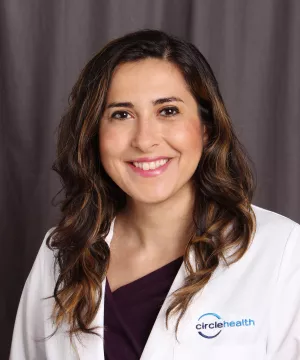
Miret Ibrahim, MD, FACC, a non-invasive general cardiologist and Medical Director of Lowell General Hospital’s Anticoagulation Management Service, shares what you need to know to keep your heart healthy and strong.
What is heart disease?
A wide variety of cardiovascular conditions fall under the umbrella of heart disease – some conditions are related to the heart’s physical structure, while others are related to the heart’s functioning and rhythm. The most common condition people are aware of is coronary artery disease (CAD), which is the buildup of plaque in the arteries that supply blood to the heart.
What are some other types of heart conditions?
Other cardiac illnesses include congestive heart failure, arrhythmia, cardiomyopathy or abnormalities with the heart muscle. Also, there can be damage or a defect in one of the four heart valves that control blood flow, called valvular heart disease. Other conditions involve abnormalities in the heart’s electrical rhythm, which can cause an irregular heartbeat or arrhythmias.
What are the common risk factors associated with heart disease?
Three key risk factors are high blood pressure, high LDL cholesterol and smoking. Several other medical conditions and lifestyle choices can also put people at a higher risk for heart disease, including a family history of heart disease, diabetes, obesity, poor diet and stress.
What role does blood pressure + cholesterol play in heart disease?
It’s so important to know your numbers. Your blood pressure should be less than 120/80. Also, make sure you have your cholesterol checked at your annual physical. Cholesterol is broken into three areas:
- LDL Cholesterol: When too much LDL (“bad”) cholesterol circulates in the blood, it can slowly build up to form plaque in the inner walls of the arteries that feed the heart and brain.
- HDL Cholesterol: HDL cholesterol is known as good cholesterol because high levels of HDL seem to protect against heart attack.
- Triglycerides: Triglyceride is a form of fat made in the body. Your total cholesterol numbers should be less than 200 and your total triglycerides less than 150.
What are the warning signs of a heart attack?
Some heart attacks are sudden and intense, but most heart attacks start slowly, with mild pain or discomfort. If you experience any of the following symptoms, don’t ignore them, call 911:
- Chest discomfort
- Discomfort in other areas of the upper body – either or both arms, the back, neck, jaw or stomach
- Shortness of breath, which may occur with or without chest discomfort
- Other signs may include breaking out in a cold sweat, nausea or lightheadedness
What are some other things we can do to prevent heart disease?
The 3 most important things you can do are:
- Maintain a healthy weight and commit to 30 minutes of daily exercise.
- Eat a healthy diet that is low in salt; low in total fat, saturated fat and cholesterol; and rich in fresh fruits and vegetables.
- Don’t smoke. If you smoke, quit as soon as possible. Smoking is the number 1 preventable cause of heart disease-related death worldwide.
Learn more about our cardiology services, including treating heart disease, screenings, programs and treatments.